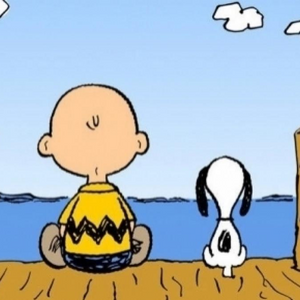The Power of Fatherhood
I've long since retired and my son's moved away.
I called him up just the other day.
I said, "I'd like to see you if you don't mind.
"He said, "I'd love to, dad, if I could find the time.
You see, my new job's a hassle, and the kid's got the flu,
But it's sure nice talking to you, dad.
It's been sure nice talking to you.
"And as I hung up the phone, it occurred to me,
He'd grown up just like me.
My boy was just like me.
(Cat’s in the Cradle - Harry Chapin)
The song lyrics above are a good reminder of the precious, but limited opportunities that we have with our boys to love them, shape them and empower them during their early impressionable years.
While every family dynamic is unique, and positive outcomes can be achieved in many structures, the presence of an involved, supportive father (or significant father figure) has been consistently linked to better outcomes for boys.
Boys whose fathers were present scored higher on every achievement test and received higher grades. The more involved dad is, the greater a boy’s increase in verbal intelligence, and the better are both boys’ and girls’ math and quantitative abilities. Fathers often engage in different styles of play and problem-solving that encourage curiosity and persistence (skills linked to cognitive growth).
Boys with involved fathers tend to have higher self-esteem and emotional resilience. A loving, stable relationship with a father helps a boy feel secure, valued, and supported, which protects against anxiety and depression. A resource from the Australian Institute of Family Studies and Telethon Kids Institute outlines how father/child play supports children’s mental health, including emotional resilience and behaviour regulation, so critical during the primary years.
Positive father involvement also serves as a buffer against peer pressure and negative environmental influences. Research has shown that children whose fathers were both emotionally close and highly involved had greater educational attainment, and they were less likely to commit delinquent acts’. (Dan Kindlon and Michael Thompson - Raising Cain p99)
Boys often look to their fathers as role models for masculinity and behaviour. A father helps a boy understand what it means to be a man, not just physically, but emotionally, ethically, and socially. When fathers model healthy masculinity (e.g. showing emotions and treating others with respect), boys are more likely to adopt those traits. They learn how to treat others, especially how to interact with women, peers, and authority figures, through watching and engaging with their fathers.
It's important to note that "father" doesn’t always have to mean biological dad. Stepfathers, grandfathers, uncles, mentors, or other significant male figures can fulfill many of the same roles if they are emotionally available, consistent, and supportive.
Father engagement, especially when it’s emotionally supportive and quality-focused, serves as a powerful protective factor for boys. It helps shape moral character, emotional intelligence, academic success, and healthy interpersonal behaviours.
Boys who have a healthy relationship with their father are more likely to grow into responsible, emotionally intelligent, and stable men. They are also more likely to become involved and nurturing fathers themselves, continuing the cycle.
God created us to be in relationships. As fathers, so often we neglect the relationships which have the potential to bring the greatest joy and satisfaction – those with our children. If relationships haven’t been the best, it’s not about feeling guilty. It’s just about looking forward and being intentional.
Fathers’ Day is an opportunity to review our performance of ‘Fatherhood’ and give thanks for this special relationship!
Grace and peace to you from God our Father and from the Lord Jesus Christ. Romans 1:7b
Peter Grimes | Headmaster














